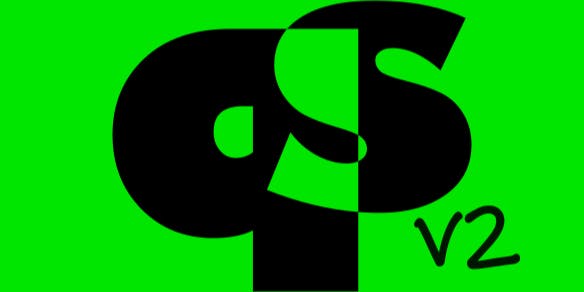Remember last week when I spoke about how to use
querySelect()querySelectAll()qs()()Here's what the old version looks like.
var qs = parent => (query,all) => (typeof(parent) === "string") ? qs(qs()(parent))(query,all) : (parent||document)[`querySelector${(all||false)?"All":""}`](query);And here's the new version of
qs()()var qs = parent => query => {let q; return (typeof(parent) === "string") ? qs(qs()(parent))(query) : (q = (parent||document).querySelectAll(query)).length > 1 ? q : (q[0]||null);};Try as I might, I really hoped that that
let qvar qq = (parent||document).querySelectorAll(query)qq.length > 1=let qRemember that when you assign a value to a variable, the assignment operator returns the value assigned to that variable. You can try it out in the debugging console of your browser or in a Node.js console right now. If you type in
five = 5;55fiveI could go on about operator precedence in JavaScript, but I don't want to.
I could have gone without the
let q{...}returnqq = (parent||document).querySelectorAll(query)qlet qletq.lengthletvarconstundefinedundefined.lengthTypeError"use strict";qletvarconstReferenceError// Let's review (assuming strict mode is not initially set in this figure)
five = 5; // => 5 (because the assignment operator returns the value that is assigned to the variable; because strict mode is not enabled, five is hoisted, and can be initialized without declaration first)
var six; // => undefined (declaration keywords (var, let, and const) return undefined even though the variable. If six was previously used, it would have been hoisted.)
var seven = 7; // => undefined (although 7 is assigned to seven; seven is declared and assigned so technically it's hoisted)
var num = x => {
"use strict";
let w; // => undefined (although w is defined)
y = x; // => ReferenceError (because y was not defined)
w = (var z=[x,y,3]).length; // SyntaxError (because unexpected token "var" next to z) (also, if it had worked the code inside the parenthesis would have returned undefined, of which undefined.length is a TypeError)
return w;
};At any rate, because our
let q{...}returnq//Remember that this form, known as FUNCTIONAL FORM,...
var f = x => x;
// Means the same as this form, known as FUNCTIONAL-IMPERATIVE FORM,...
var f = x => { return x; }
// Means the same as this form known as IMPERATIVE FORM
var f = function(x){ return x; }So here is the new
qs()()/* @func: qs
* @desc: querySelector[All] in one function
* @param parent : (@default is document) A string or Element to find the query element(s)
* @param query : (required) A CSS string matching an id, class, or attribute of elements inside the parent.
* @returns:
* null if nothing is found.
* Node if query matches one result.
* NodeList query matches more than one result.
*/
var qs = function(parent){
return function(query){
let q; // q is declared in the inner function
if(typeof(parent) === "string"){
let parent_query = qs()(parent);
return qs(parent_query)(query);
} else {
// If parent is undefined, use document.
var parent_element = parent || document;
q = parent_element.querySelectorAll(query);
if(q.length > 1){
// if q match more than one instance return all matches as a NodeList.
return q;
} else {
// Otherwise, return the first element only
// Note: If [] is returned, and [][0] is undefined (meaning no matches), return null.
return (q[0]||null);
}
}
} // inner function
} // outer functionBefore I talk about what makes this different from the old version, I want to talk about two functions in the
Array.find().filter().filter()[0].find().filter()[0]There is one other thing to note. If
.filter()[].find()undefined[][0]undefinedThe
.querySelector().find()NodeList.querySelectorAll().filter().querySelector()undefinednullnullundefinedJust about all
.getElementsBy*().querySelectorAll().getElementById()null.querySelector()nulltypeof([]) === "object"typeof(null) === "object"q[0]undefinednullWith that, we eliminate the
allqs()().querySelector().querySelectorAll()So that's the new
qs()()Here at Hackernoon, I plan on describing the more simplified versions of some of these function. The haqs library version is a bit more complicated because I was a bit braggadocio with demonstrating the functional programming aspects. I would really like to see just an itty-bit of object-oriented programming to reduce the amount of repetition and static structuring.
I also want to apply functional patterns to write code with a concise behavior. Haqs isn't quite ready yet, but I integrate some of the stuff I'm talking about here into it as I would like for it to be used in my Codepen work.
We'll see how it turns out. Until next time, keep hacking!


